Sunflower-36rai - 🌻

More Posts from Sunflower-36rai and Others
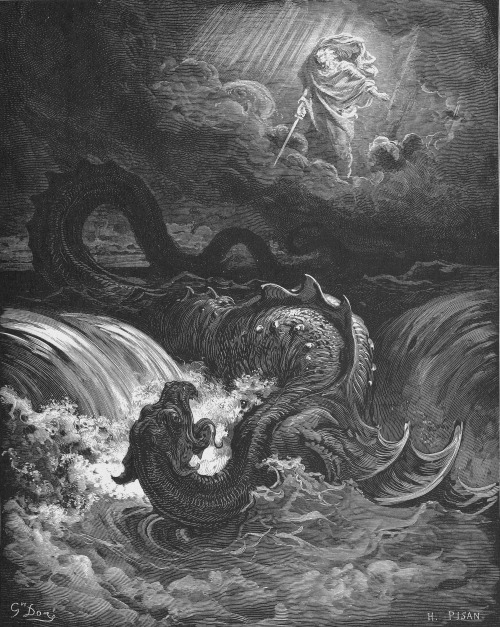
Gustave Doré (1832–1883) The Destruction of Leviathan (Is. 27:1-13) (1866) Engraving “In that day the Lord with his sore and great and strong sword shall punish Leviathan the piercing serpent, even Leviathan that crooked serpent; and he shall slay the dragon on that is in the sea…” (Isaiah 27:1)
It always upsets me so much when I see interpretations/illustrations of the two headed calf poem that show a living calf being torn away from its mother and killed to sell to a museum and framing the poem as being "humanity kills beautiful things for being different".
Two headed cows almost never survive more than a few hours after their birth. The farmer finds the *body* the next day. The calf was destined to die, and that's a tragedy, but for the time it was alive, it had a beautiful and unique experience.
It's not a poem about the cruelty of man. It's a poem about the beauty of life in an indifferent universe. It's about purpose and beauty being able to exist even in an existence doomed to come to an end, as all our lives are. It's not a poem about how a calf dies, but how, even for only a brief moment, it was alive.
And, for that moment, because of that life, however fleeting, the sky had twice as many stars.
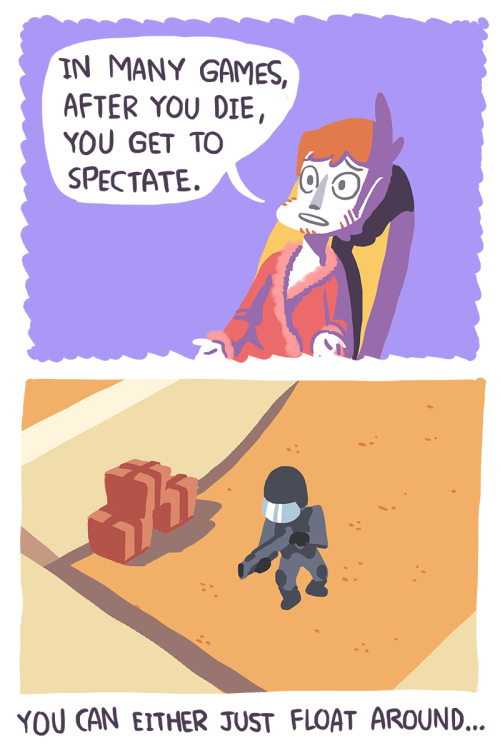
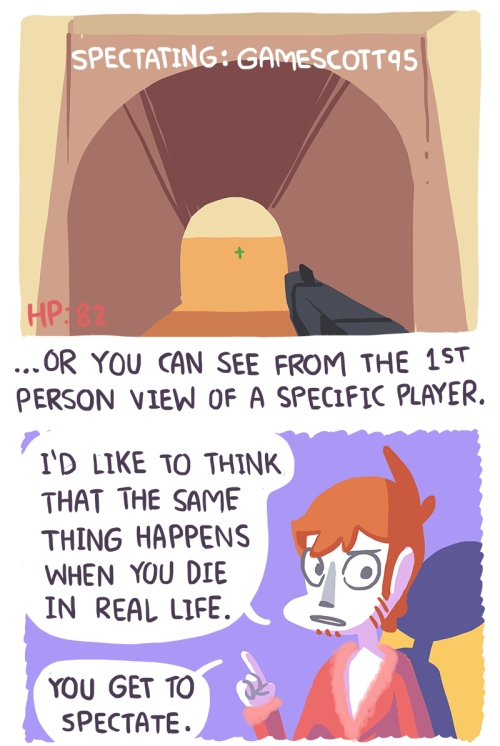
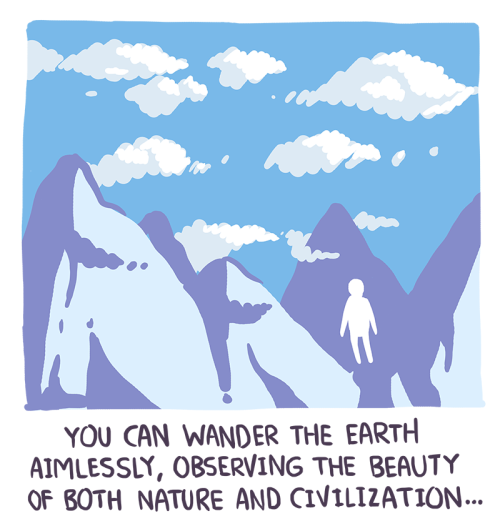
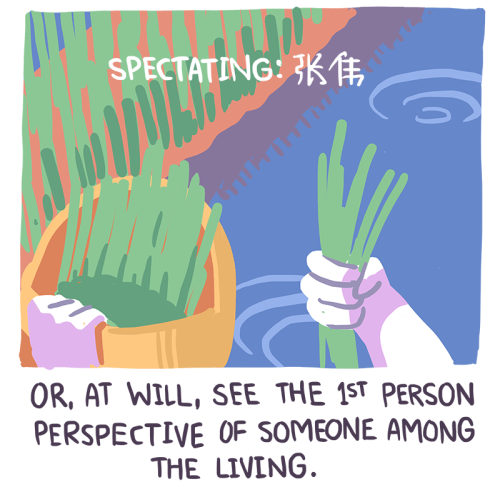

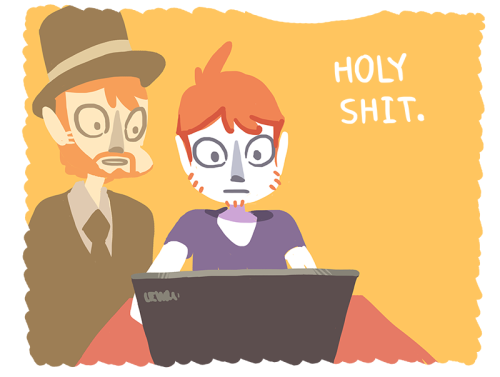
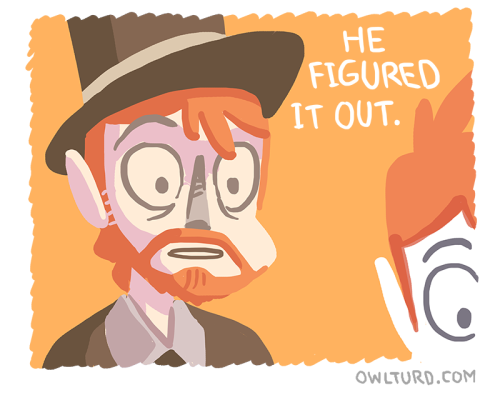
And then you respawn?
image | twitter | facebook | support
Whale Shark Gliding Through Bioluminiscent Algae _ Mike Nulty

All that silence. #pascalcampion
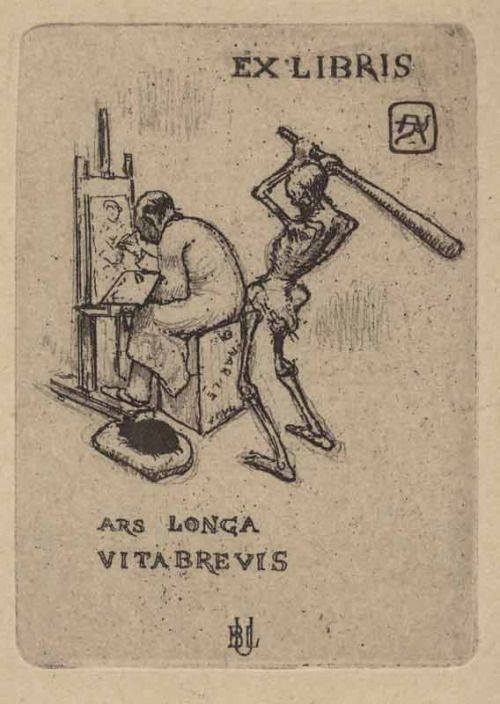
Ars longa, vita brevis is a Latin translation of an aphorism coming originally from Greek. The Latin quote is often rendered in English as Art is long, life is short.

creating a universe with your own hands

Fairies looking through Gothic Arch, c. 1864 by John Anster Fitzgerald (English, c. 1819–1906)

Hugo Simberg, The Garden of Death, 1896.
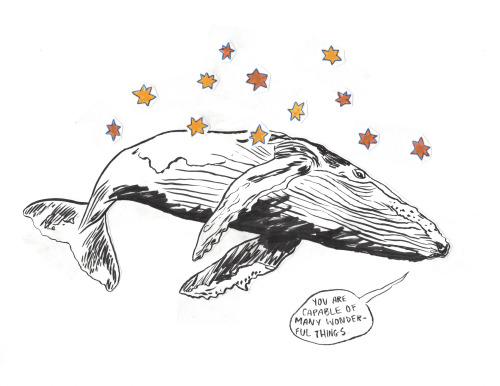
-
 sunflower-36rai reblogged this · 4 weeks ago
sunflower-36rai reblogged this · 4 weeks ago -
 thebraveandthetired reblogged this · 3 months ago
thebraveandthetired reblogged this · 3 months ago -
 tvdtvhjngccgbbjnk liked this · 2 years ago
tvdtvhjngccgbbjnk liked this · 2 years ago -
 yeeyaaye liked this · 2 years ago
yeeyaaye liked this · 2 years ago -
 younguy liked this · 4 years ago
younguy liked this · 4 years ago -
 cutiesbabybunny liked this · 4 years ago
cutiesbabybunny liked this · 4 years ago -
 shape-of-me reblogged this · 4 years ago
shape-of-me reblogged this · 4 years ago -
 somaisummolequequalquer liked this · 4 years ago
somaisummolequequalquer liked this · 4 years ago -
 dr-vampire liked this · 4 years ago
dr-vampire liked this · 4 years ago -
 crowibitiong liked this · 4 years ago
crowibitiong liked this · 4 years ago -
 ehbrief liked this · 4 years ago
ehbrief liked this · 4 years ago -
 saturnmortis liked this · 4 years ago
saturnmortis liked this · 4 years ago -
 route32 reblogged this · 4 years ago
route32 reblogged this · 4 years ago -
 orngsmth liked this · 4 years ago
orngsmth liked this · 4 years ago -
 rita-remade reblogged this · 4 years ago
rita-remade reblogged this · 4 years ago -
 mgord65 liked this · 4 years ago
mgord65 liked this · 4 years ago -
 automaticdreamlandkid reblogged this · 4 years ago
automaticdreamlandkid reblogged this · 4 years ago -
 chaostwofold reblogged this · 4 years ago
chaostwofold reblogged this · 4 years ago -
 automaticdreamlandkid liked this · 4 years ago
automaticdreamlandkid liked this · 4 years ago -
 lake-lady liked this · 4 years ago
lake-lady liked this · 4 years ago -
 complementaryxcolors liked this · 4 years ago
complementaryxcolors liked this · 4 years ago -
 kikisqueaks reblogged this · 4 years ago
kikisqueaks reblogged this · 4 years ago -
 kikisqueaks liked this · 4 years ago
kikisqueaks liked this · 4 years ago -
 yesaylin liked this · 4 years ago
yesaylin liked this · 4 years ago -
 dimensionalkreature liked this · 4 years ago
dimensionalkreature liked this · 4 years ago -
 pidgethebirb liked this · 4 years ago
pidgethebirb liked this · 4 years ago -
 king-of-darkness21 reblogged this · 4 years ago
king-of-darkness21 reblogged this · 4 years ago -
 king-of-darkness21 liked this · 4 years ago
king-of-darkness21 liked this · 4 years ago -
 mybedofdreams reblogged this · 4 years ago
mybedofdreams reblogged this · 4 years ago -
 ghostaimlesswander reblogged this · 4 years ago
ghostaimlesswander reblogged this · 4 years ago -
 ghostaimlesswander liked this · 4 years ago
ghostaimlesswander liked this · 4 years ago -
 edalynn liked this · 4 years ago
edalynn liked this · 4 years ago -
 bellito-morenito reblogged this · 4 years ago
bellito-morenito reblogged this · 4 years ago -
 6000z reblogged this · 4 years ago
6000z reblogged this · 4 years ago -
 visualmayhem reblogged this · 4 years ago
visualmayhem reblogged this · 4 years ago -
 myfotolog reblogged this · 4 years ago
myfotolog reblogged this · 4 years ago -
 ochi-strastnye reblogged this · 4 years ago
ochi-strastnye reblogged this · 4 years ago -
 lady-marmelade99 liked this · 4 years ago
lady-marmelade99 liked this · 4 years ago -
 supobi-huchidori liked this · 4 years ago
supobi-huchidori liked this · 4 years ago -
 clear-water reblogged this · 4 years ago
clear-water reblogged this · 4 years ago -
 bobothefuckingfool liked this · 4 years ago
bobothefuckingfool liked this · 4 years ago -
 formerferalchild reblogged this · 4 years ago
formerferalchild reblogged this · 4 years ago -
 helloworld123sworld liked this · 4 years ago
helloworld123sworld liked this · 4 years ago
